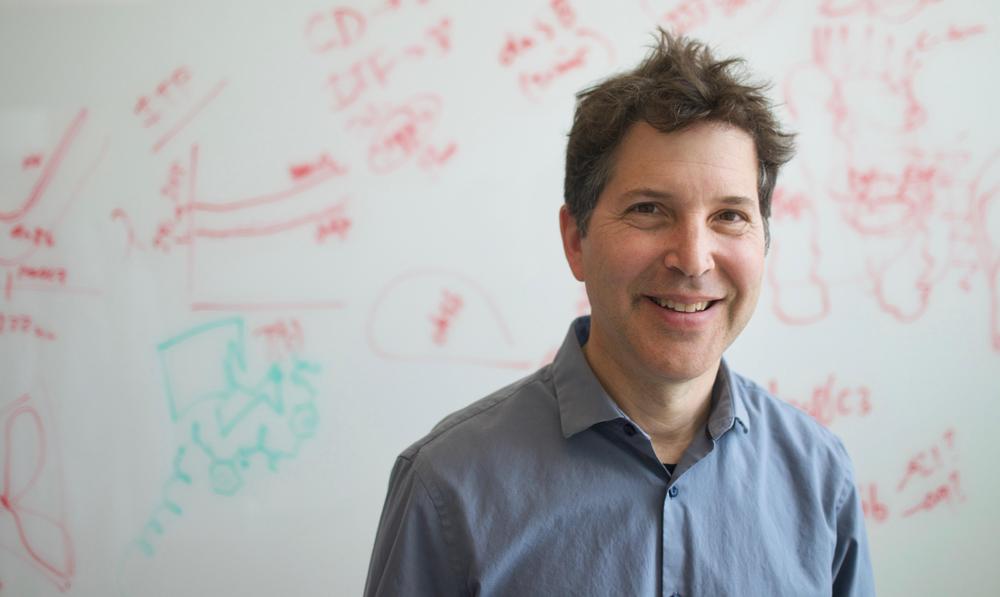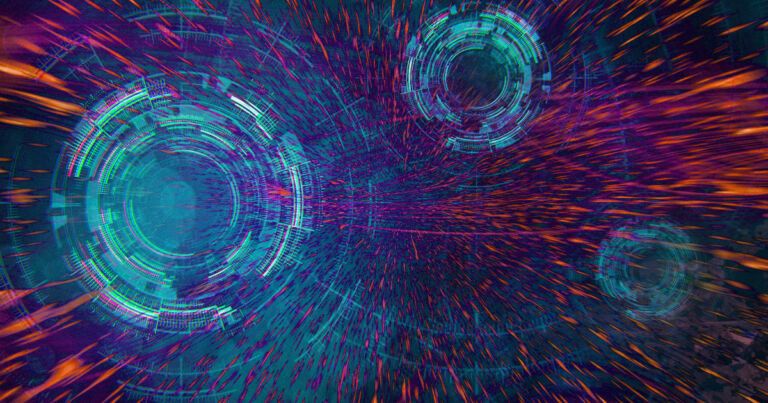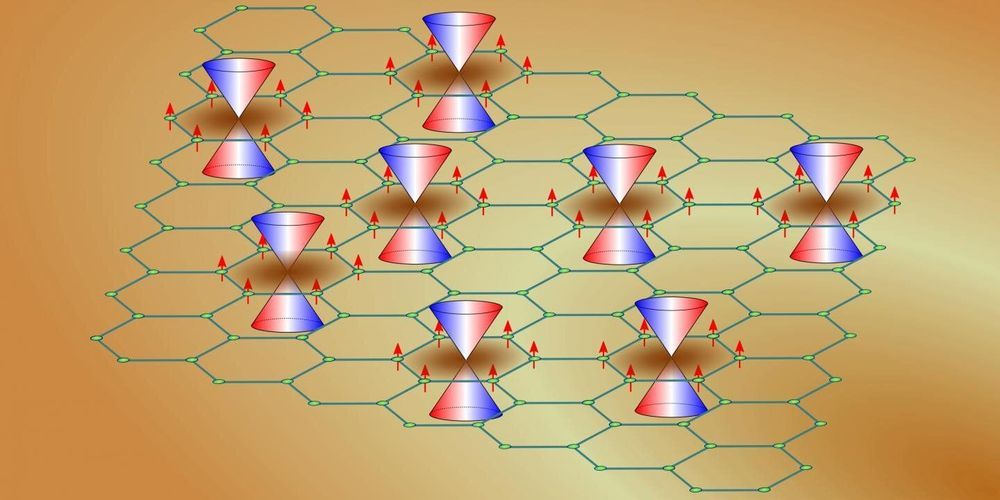This video explain the details of mitochondrial DNA structure, the difference between nuclear DNA and mitochondrial DNA, mitochondrial DNA replication or D loop replication.
Get the latest international news and world events from around the world.
High Tech Innovation, Support and Individualised Care For Leading Edge Rehabilitation
Ira Pastor, ideaXme life sciences ambassador, interviews Dr. Rachel Ramoni, Chief Research and Development Officer at the U.S. Department of Veteran Affairs.
Ira Pastor Comments:
The United States Department of Veterans Affairs (VA) @U.S. Dept. of Veterans Affairs is a federal Cabinet-level agency that provides comprehensive healthcare services to military veterans at over 1,000 VA medical centers and outpatient clinics located throughout the US. It also provides several non-healthcare benefits including disability compensation, vocational rehabilitation, education assistance, home loans, and life insurance; and provides burial and memorial benefits to eligible veterans and family members.
The VA serves over 9 million enrolled Veterans each year, employs over 377,000 people and has an annual budget of $200 billion.
Within the VA structure, the Office of Research & Development is focused on improving the lives of Veterans, and all Americans, through health care discovery and innovation including: basic, translational, clinical, health services, and rehabilitative research, and applies scientific knowledge to develop effective individualized care solutions.
Dr. Rachel Ramoni

A new electric-truck stock is hitting the market
Special purpose acquisition company Tortoise Acquisition Corp. and electric truck company Hyliion will vote on their merger on Sept. 28, meaning there will likely soon be another EV player on the market, according to a recent filing with the Securities and Exchange Commission.
The companies announced their intention to merge in June, shortly after Nikola went public through a reverse merger with VectoIQ, also a special purpose acquisition company or SPAC.
Once the deal closes, the combined company will be known as Hyliion Holdings Corp., and it will trade on the New York Stock Exchange under the ticker HYLN. Through the merger Hyliion will receive $560 million, which will be used to accelerate product commercialization.

Research team discovers unique supernova explosion
One-hundred million light years away from Earth, an unusual supernova is exploding.
That exploding star —which is known as “supernova LSQ14fmg”—was the faraway object discovered by a 37-member international research team led by Florida State University Assistant Professor of Physics Eric Hsiao. Their research, which was published in the Astrophysical Journal, helped uncover the origins of the group of supernovae this star belongs to.
This supernova’s characteristics—it gets brighter extremely slowly, and it is also one of the brightest explosions in its class—are unlike any other.

The World’s First Living Machines
Teeny-tiny living robots made their world debut earlier this year. These microscopic organisms are composed entirely of frog stem cells, and, thanks to a special computer algorithm, they can take on different shapes and perform simple functions: crawling, traveling in circles, moving small objects — or even joining with other organic bots to collectively perform tasks.
The world’s first living robots may one day clean up our oceans.

Hubless Electric Motorcycle with Mad Max Looks
If Mad Max bikes were electric they would probably look like this design rendering from Shane Baxley. An electric power unit, orbital wheels, two-sided swingarm, manual transmission and a raw minimalistic bodywork complete the package.
Hollywood-based concept artist and vehicle designer Shane Baxley created this motorcycle design rendering on his computer. And it looks mind-boggling. The electric motorcycle design features cyberpunk lines and wheels without hubs. The idea of a hubless wheel bike is not new as it was conceived by an Italian designer, Franco Sbarro, in the 1980s.
To create a striking visual effect, the electric motorcycle is fitted with spokeless wheels equipped with knobby tires. As we said before, the wheels are hubless and the functionality of the wheel hub is taken over by the rim while the two-sided swingarm is connected to the inside of the bike at three points at the front and rear.

DeepMind’s AlphaZero breathes new life into the old art of chess
“Of chess, it has been said that life is not long enough for it,” chess master William Napier once said, “but that is the fault of life, not chess.”
The game of chess itself has had a gloriously long life, with earliest recovered relics of the ancient game dating to the ancient Persian Sasanian Empire in 600 AD.
The game has gone through hundreds of modifications, tweaks and enhancements over the centuries. Of an estimated 2,000 variations of the game, most have been developed only in recent years. One single version itself, known as Chess960 (created by world chess champion Bobby Fischer), has 960 variations of the game, with each version rearranging the standard positioning of all game pieces.

2021 Breakthrough Prize Winners Announced: Researcher Who Developed Protein Design Technology Awarded $3 Million
Baker won one of the six $3 million Breakthrough Prizes this year, which were awarded to eight different scientists in Mathematics, Fundamental Physics and Life Sciences.
David Baker, whose protein design technology is being used to develop therapies for Covid-19 and cancer, received one of several awards to scientists from the Breakthrough Prize Foundation that add up to a combined total of $21.75 million.

Physicist: The Entire Universe Might Be a Neural Network
I’ve felt this might be true for many years. There’s obviously nothing inherently biological about neural networks. It could even explain the development of intelligent life when so many things work against that development — the universe is driven to try to create intelligence — a form of “intelligent design.”
We live inside a neural network, he says, not a simulation — “but we might never know the difference.”

Quirky response to magnetism presents quantum physics mystery
The search is on to discover new states of matter, and possibly new ways of encoding, manipulating, and transporting information. One goal is to harness materials’ quantum properties for communications that go beyond what’s possible with conventional electronics. Topological insulators—materials that act mostly as insulators but carry electric current across their surface—provide some tantalizing possibilities.
“Exploring the complexity of topological materials—along with other intriguing emergent phenomena such as magnetism and superconductivity—is one of the most exciting and challenging areas of focus for the materials science community at the U.S. Department of Energy’s Brookhaven National Laboratory,” said Peter Johnson, a senior physicist in the Condensed Matter Physics & Materials Science Division at Brookhaven. “We’re trying to understand these topological insulators because they have lots of potential applications, particularly in quantum information science, an important new area for the division.”
For example, materials with this split insulator/conductor personality exhibit a separation in the energy signatures of their surface electrons with opposite “spin.” This quantum property could potentially be harnessed in “spintronic” devices for encoding and transporting information. Going one step further, coupling these electrons with magnetism can lead to novel and exciting phenomena.